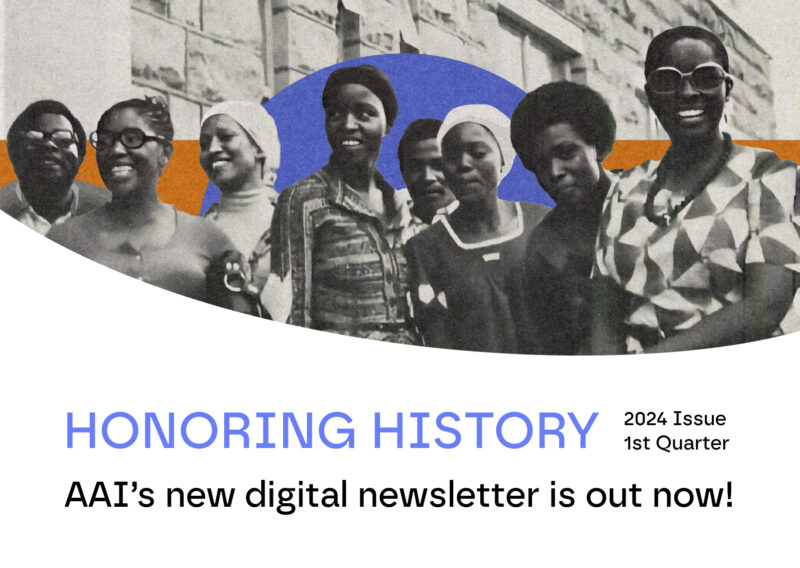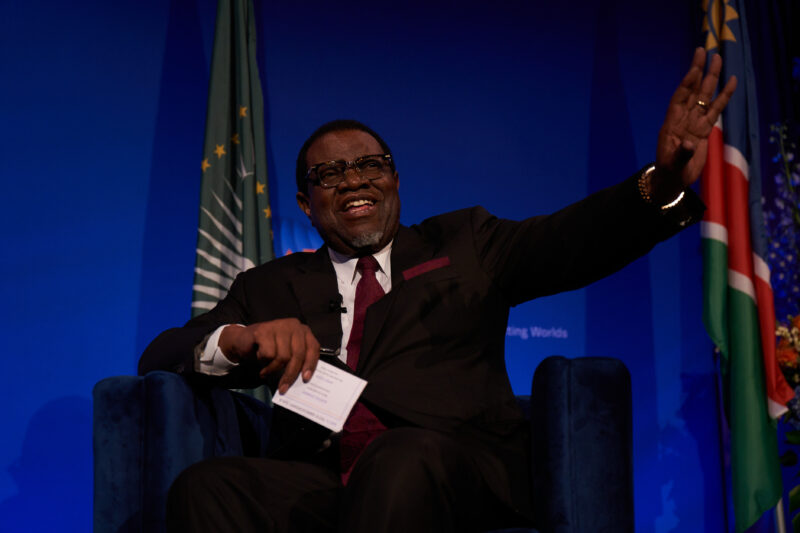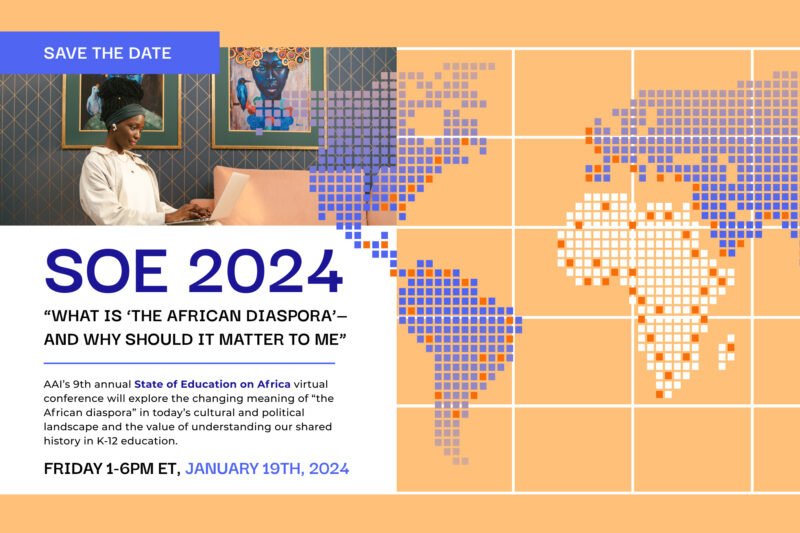From the Archives: First International Congress of Africanists
AAI will feature a monthly “From the Archives” blog, highlighting historical milestones in AAI and African history. This blog post features verbatim historical documents from AAI’s files and articles from Africa Report, a monthly publication of in-depth analysis and reports chronicling the continent’s dramatic political and economic developments.
Published from 1956 through 1995, Africa Report became the most significant Africa-focused publication in the U.S.
Africa Report, February 1963. Volume 8, Number 2
Africanists’ Congress Meets at Accra
“The Congress, which many feared would be second-rate, or dominated by politics, proved a success—partly because it produced a sensible constitution that will ensure its continuation, partly because it gathered a distinguished and stimulating group of scholars together in such pleasant surroundings as the University of Ghana, partly because of the interest of many of the papers that were presented, but above all, because it represented a sort of declaration of cultural independence of Africa by Africans.”
Organizing Committee of the first International Congress of Africanists at University College, Ibadan in September 1961, Dr. K. Onwuka Dike, the chairman, outlined what he felt Africans expected of the Congress:
” . . . we hope for a Congress in which African Africanists for the first time can take the lead and make the decisions; and a Congress which can coordinate all the work being done in Africa at the moment. We envisage it as having the practical purpose of avoiding unnecessary duplication of effort and allowing continuing contact between all Africanists, whether African, European, American, or Asiatic. We hope that scholars from all over the world will attend the Congress with sympathy and understanding for our desire to provide a forum for African interpretations of African affairs and to some extent a nursery for aspiring African scholars.”
The Congress, which was held in the University of Ghana December 11-18, lived up to Dr. Dike’s expectations in nearly all these respects, and in particular in the size and caliber of the African participation. Over 200 of the 600 participants came from Africa. This may not seem a high proportion for a conference of Africanists, but, as Dr. Dike himself stressed on the opening night, African studies have been largely the preserve of non-African scholars.
The Congress was first conceived in Moscow in 1960. Until that year, those interested in African studies only had occasion to meet as an international body in the Africa Section of the International Congress of Orientalists. At the 25th meeting of the Orientalists in Moscow, the Africa Section resolved that, in view of the growing importance of African studies, a separate Congress of Africanists be set up. Dr. Dike, well-known both as principal of University College, Ibadan (now University of Ibadan) and as author of the pioneering historical work, Trade and Politics in the Niger Delta, was nominated chairman of the Congress in absentia.
The Organizing Committee for the new Congress was carefully chosen to stress its international character and to give as much emphasis as possible to African participation. Heads of university institutions in Senegal, Ethiopia, Congo-Leopoldville, and Ghana, together with a representative from the National Education Secretariat of Tunisia, were chosen from within Africa itself; representatives of the International African Institute, the Africa Institute of the Russian Academy of Sciences, the Societe Africaine de Culture, and the US African Studies Association were invited to participate.



